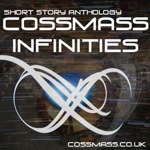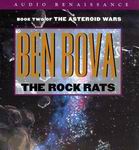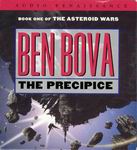
 The Wind from a Burning Woman
The Wind from a Burning Woman
By Greg Bear; Read by George Guidall and Christina Moore
7 Cassettes – 10 Hours [UNABRIDGED]
Publisher: Recorded Books
Published: 1992
ISBN: 1556907672
Themes: / Science Fiction / Fantasy / Terrorism / Asteroids / Metaphysics / Religion / Utopia / Dystopia / Future City / Cloning / Aliens
This superior anthology collects several early Greg Bear stories. The narrators, George Guidall and Christina Moore, guide us skillfully through Bear’s dense prose and do so with obvious relish. This collection features only top-notch stories — any single tale alone would be sufficient evidence that Bear is a future Grandmaster of science fiction and fantasy. Bear’s later novels occasionally suffer from a density that makes reading difficult. Very little of this is evident in this collection. The stories are generally clear in the telling, and where they are not, the confusion is brief. The wholly original and infinitely interesting ideas contained within each story make worthwhile any brief confusion of style.
The Wind from a Burning Woman, the title story, was later to serve as a prequel to Bear’s novel Eon, and describes the possible consequences of the ultimate act of terrorism.
The White Horse Child is an great allegory about a curious young boy who will grow up to become a writer. Written in a style that owes a debt to Clifford D. Simak, this pastoral fantasy story is an instant classic. Petra is a very unusual fantasy tale, its religious theme tackles the hard boiled consequences of taking certain biblical prophecies events as actual future events. So brilliantly does it achieve originality it reminds us why Greg Bear is so exceedingly interesting to read.
Scattershot is my personal favorite in this collection. Its sheer inventiveness and exploration of the consequences of metaphysical physics makes it a fascinating listen.
Mandala is an almost satiric examination of the far end of the curve of utopian ideals. It could almost be thought of as Greg Bear’s take on Arthur C. Clarke’s The City and the Stars.
Hardfought is a Hugo-winning novella that follows the viewpoints of both the aliens and the humans in their interstellar war. It could be considered Greg Bear’s take on Robert Heinlein’s Starship Troopers or Joe Haldeman’s The Forever War. In order to fight their battle, humans have adapted in strange ways. It’s an absolutely fascinating read.
Stories included:
The Wind from a Burning Woman
The entire crew of Psyche, an asteroid turned into a spaceship, is murdered. Giani, the granddaughter of the project’s administrator commandeers the spaceship in an attempt to uncover the truth.
The White Horse Child
An odd allegory about a boy becoming a writer. God fearing, book burning, censoring Auntie Dancer tries to stop a child from becoming a storyteller.
Petra
“God is Dead”, when stone comes alive after reality rearranges itself. Petra is a half-caste, a lowly figure in the world of the cathedral. His father was a living statue, his mother a human nun.
Scattershot
Francis Geneva finds herself allied with a robotic Russian teddy bear after her starship has an accident. She and her new companion are forced to explores the consequences of the many-worlds interpretation of quantum mechanics. In a reality where every possibility exists coping can be quite stressful. Sometimes the aliens are from Earth.
Mandala
In order to become perfect the sentient cities of Earth cast off their final flaw, the problem causing people. Mandala explores a future where mankind has reverted to a stone age existence after losing access to their technology.
Hardfought
Insular aliens known as the Sylexy are at war with humanity, in an attempt to understand their strange enemy they capture and clone a human soldier.
posted by Steen Hansen

 Suicide is Painless
Suicide is Painless




 The Wind from a Burning Woman
The Wind from a Burning Woman